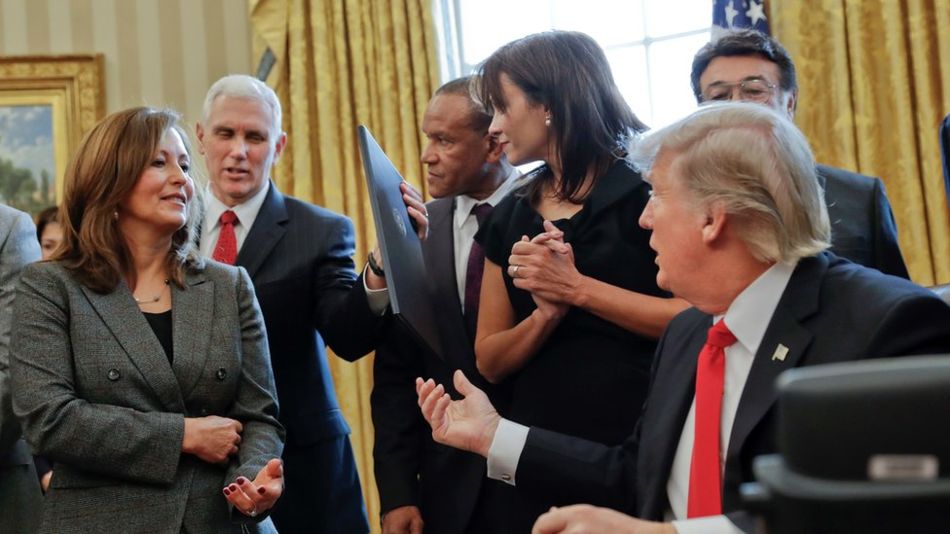-
30 January 2017

Trump: Executive order signed on business regulations
|

President Donald Trump has signed an executive order designed to cut the number of regulations affecting US businesses.
It is just the latest in a flurry of decisions made by President Trump in his first few days in office.
He signed the order in front of a group of business people, saying it was aimed at "cutting regulations massively for small business".
It was the "biggest such act that our country has ever seen," he added.
Speaking in the Oval Office, he said he wanted to tell small business owners that the "American dream is back'' and that he would "create an environment for small business,'' by ending or limiting existing regulations.
The president went on to say that a large proportion of the American workforce was employed by these firms, therefore: "We want to make life easier for these small business owners.''
Despite the president's emphasis on small businesses, the wording of the order does not mention them specifically, so the order will affect businesses of all sizes.
US diplomats 'to criticise immigrant ban'
Trump's first week: Well, that was intense
Described as a "two-out, one-in" approach, the latest executive order asked government departments to request a new regulation and to specify two other regulations which they will drop.
The Office of Management and Budget (OMB) will manage the regulations and is expected to be led by the Republican Mick Mulvaney.
Some categories of regulation will be exempt from the "two-out, one-in" clause - such as those dealing with the military and national security and "any other category of regulations exempted by the director".
The executive order says the cost of planned regulations must be "prudently managed and controlled through a budgeting process" and that it shall be up to the director to define how the costs are measured and "what qualifies as new and offsetting regulations".
Todd McCracken from the National Small Business Association told the BBC that there was "a lot left to understand about the executive order" and that "this really is a case where the devil is in the detail".
He said they would be focused on making sure that small businesses really do benefit from fewer regulations, and not just large companies, because that point was not specifically made in the order.
This latest move comes as many companies criticised the President's US travel ban on immigration from seven countries introduced last Friday.
Goldman Sachs boss Lloyd Blankfein left a voicemail for employees saying it was "not a policy we support", and executives at the car maker Ford had the same message for their workers.
A host of tech firms - Facebook, Google and Airbnb among others have also voiced concerns.
Amazon, Expedia and Microsoft have all agreed to help with legal action against the immigration curbs, taken by Washington State, explaining its detrimental impact on their operations and their employees.
![]()